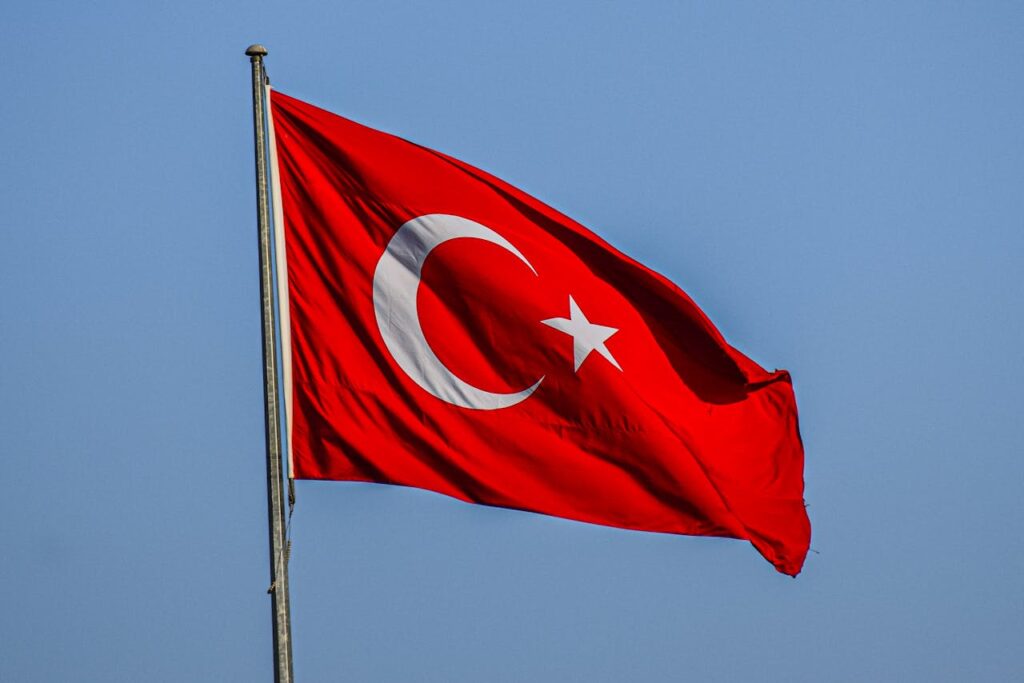
Table of Contents
How to Buy Property in Turkey as a Foreigner: Restrictions, Rules, and Step-by-Step Guide
Buying property in Turkey as a foreigner is an exciting venture that requires understanding various restrictions and rules. Whether you are seeking an investment, a vacation home, or residency, knowing the steps and legalities can ensure a smooth transaction. Turkey has seen significant growth in its property market, and cities like Istanbul and Ankara have experienced substantial price increases in recent years.
Foreigners should be aware of specific restrictions, such as verifying that no legal limitations, like mortgages or arrests, exist on the property. These legal checks are essential for a hassle-free purchase. Additionally, granting power of attorney to a solicitor in Turkey can simplify the purchase process, making it more efficient and convenient.
Key Takeaways
- Foreigners must verify legal restrictions on properties.
- Granting power of attorney can ease the buying process.
- Turkish property market offers opportunities for growth.
Understanding the Turkish Property Market
The Turkish real estate market is dynamic, with rising property prices and new housing projects. Key areas like Istanbul, Antalya, and Bodrum are attracting significant interest. Here is an overview of key insights, best places to invest, and current trends.
Key Market Insights
The Turkish property market has seen significant growth. House prices in Turkey increased by 132.84% in certain provinces. This boom is driven by factors like urban renewal projects and a high demand for both residential and vacation homes.
Real estate transactions have consistently exceeded over a million annually from 2013 to 2022. Foreigners can buy property, though they are restricted to owning no more than 10% of the total area of any district.
Best Places to Buy Property in Turkey
Istanbul is a top choice for many investors due to its cultural significance and economic opportunities. Luxury apartments and villas are particularly popular here.
Antalya is another sought-after location, especially for those looking for vacation homes. It offers a blend of beautiful beaches and vibrant city life.
Bursa and Izmir are also notable, with more affordable property options. For those interested in idyllic settings, Bodrum and Fethiye offer stunning coastal properties.
Current Trends
The Turkish property market is experiencing a wave of new housing projects. This growth is driven by urban renewal and government incentives to boost real estate development.
Property prices continue to rise, making it a seller’s market. However, the influx of new projects is providing more opportunities for buyers.
Rising interest from international buyers is another significant trend, contributing to the demand for high-end properties like luxury apartments and villas. House prices in Turkey remain competitive compared to many Western markets, attracting global investors.
Legal Aspects for Foreign Buyers
Foreign buyers interested in purchasing property in Turkey need to be aware of several legal aspects. These include the basics of Turkish property law, specific ownership restrictions, and the requirements for military clearance.
Turkish Property Law Overview
Turkish property law allows foreigners to buy property with certain conditions. Legal ownership involves a title deed, which is crucial for proving ownership. Transactions usually take place at a land registry office.
Due diligence is important and involves checking the property’s legal status. It’s advised to get help from a legal expert familiar with Turkish law. Buyers should verify the property’s status, including any existing restrictions or encumbrances.
Ownership Restrictions
Foreigners buying property in Turkey must adhere to specific ownership restrictions. They cannot own property in military zones or strategic areas. There are also limits on the size of land a foreign national can own, usually capped at 30 hectares.
Additionally, local regulations might impose further conditions based on the property’s location. Buyers should consult local officials to understand any region-specific restrictions that may apply.
Military Clearance Requirements
For properties near military zones, military clearance is needed. This clearance aims to ensure that the property is not within a restricted area. Foreign buyers must submit an application for military clearance when purchasing property.
The clearance process involves coordination with local military offices to verify the property’s eligibility. Approval can take several weeks, and buyers should factor this into their planning. This requirement helps protect national security while allowing foreigners to invest in Turkish real estate.

The Purchasing Process
Buying property in Turkey as a foreigner involves several crucial steps. These include finding the right property, making an offer and negotiating it, signing a sales agreement and paying a deposit, and obtaining the Tapu (Title Deed).
Finding the Right Property
Begin by researching the Turkish property market. Consider factors like location, price, and type of property. Work with a reputable real estate agent who specializes in properties for foreigners. They can provide valuable insights into the market and help you find a property that matches your needs.
Use online property listings, visit properties in person, and check the neighborhood’s amenities and infrastructure. View multiple properties to compare options before making a decision. Ensure the real estate agent provides complete property valuations for each potential purchase.
Making an Offer and Negotiation
Once a suitable property is identified, the next step is to make an offer. The buyer should work closely with their real estate agent to determine an appropriate offer price. This initial offer can then be negotiated.
Negotiating the price is common, and it helps to have a clear budget. Be prepared to discuss various aspects like the condition of the property and any additional fees or repairs that might be needed. When a mutual agreement is reached, the terms should be clearly documented.
Sales Agreement and Deposit
When both parties agree on the terms, a sales agreement is drafted. This agreement outlines the details of the transaction, including the purchase price, deposit amount, and any conditions attached to the sale.
A reservation deposit is often required to secure the property. This deposit typically ranges from 1% to 3% of the property’s price. The remaining deposit will usually be paid at a later stage, often amounting to around 10% of the overall purchase price.
Obtaining the Tapu (Title Deed)
The final step is acquiring the Tapu, or Title Deed, from the Land Registry Office. To do this, the buyer must ensure all necessary documents are ready and that the sales contract is in order.
Hiring a solicitor is highly recommended to handle legal matters. They often require power of attorney to act on the buyer’s behalf. The solicitor ensures the transfer of ownership is smooth and legal. The buyer and seller both have to pay the Purchase Tax, which is 4% of the property’s assessed value, during this process. Once completed, the buyer receives the Tapu, officially becoming the property owner.
For more detailed guidance, you can refer to guides such as this step-by-step guide to buying a home in Turkey.
Financial Considerations
When buying property in Turkey as a foreigner, it’s essential to understand the costs, financing options, and taxes involved. Here is a breakdown of the key financial factors you need to consider.
Cost Breakdown for Property Buyers
The cost of buying property in Turkey includes several components. First, there is the property price itself, which varies based on location. For example, property prices in Istanbul and Ankara have seen significant increases recently.
You will also have to pay notary fees and legal fees. Notary fees can range from 1% to 2% of the property’s sale price. Legal fees typically add another 1% to 1.5%. Additionally, there are fees for property appraisal and registration which vary but generally amount to around 4,000 Turkish Lira (TRY).
Here is a quick breakdown:
- Property Price
- Notary Fees: 1% – 2%
- Legal Fees: 1% – 1.5%
- Appraisal and Registration Fees: Approx. 4,000 TRY
Mortgage and Financing Options
Foreigners can obtain mortgages in Turkey, although policies may vary. Mortgage rates tend to be higher compared to those available to Turkish citizens. Foreign buyers need to have good credit and should ideally finance part of the purchase price through savings to qualify for better rates.
Banks typically require a down payment of 20% to 30% of the property’s value. The interest rates on mortgages in Turkey can range from 8% to 12% annually. Repayment terms are flexible but often span 5 to 20 years.
Using local banks for mortgages can also mean dealing with transactions in Turkish Lira, which might involve currency conversion rates from your home currency.
Understanding Taxes and Fees
Property buyers in Turkey are subject to various taxes and fees. The property transfer tax is 4% of the property’s value, evenly split between the buyer and the seller. Additional fees include stamp duty and value-added tax (VAT), depending on the property’s classification and use.
- Annual Property Tax: This is generally 0.2% for residential properties.
- Stamp Duty: Around 0.948% of the contract value.
- VAT: Can be 1%, 8%, or 18% based on the property type.
These taxes and fees should be factored into your budget when planning the purchase. Understanding these financial aspects will help ensure a smooth and transparent property buying experience in Turkey.
Legal and Professional Assistance
When buying property in Turkey as a foreigner, securing legal help is crucial. This includes hiring a solicitor to handle paperwork and making use of a power of attorney for convenience.
Hiring a Solicitor
Hiring an experienced solicitor is vital. They help with verifying property titles, ensuring no legal issues, and confirming that there are no encumbrances like mortgages or liens.
It is best to find an English-speaking solicitor to avoid language barriers. They can explain the legal terms in a way that is easy to understand. Legal fees for solicitors can vary, so it’s important to get an estimate upfront. Typically, fees might range from a few hundred to a couple of thousand dollars, depending on the complexity of the transaction.
A solicitor will help with contract negotiations, ensuring your interests are protected. They also provide guidance on tax obligations, making the whole process smoother and less stressful.
Power of Attorney: When and How to Use
Using a power of attorney (PoA) can be convenient. If you cannot be in Turkey for every step of the buying process, granting a trusted individual or your solicitor a PoA can keep things moving.
A PoA allows someone to sign documents on your behalf. It’s important to draft this document carefully, specifying the exact powers granted and the duration of the authority.
The PoA must be notarized and, in some cases, may need an Apostille certification. This ensures it is legally recognized in Turkey. Using a PoA can save time and travel expenses, but it should only be granted to someone you trust completely to act in your best interest.
Living in Turkey: Beyond the Purchase
Moving to Turkey offers a variety of opportunities and challenges. Foreigners need to understand residency options, adapt to cultural differences, and deal with language barriers.
Residency and Citizenship Options
Purchasing property in Turkey can open doors to residency and citizenship. New property owners can receive a one-year residence permit. For those investing at least $400,000 in property, citizenship by investment is an option. This allows investors to bypass residency requirements for citizenship, making it a popular choice among foreigners.
Apart from property investment, starting a business or depositing a certain amount in a Turkish bank are also viable paths to citizenship. However, these routes often require meticulous planning and legal advice to ensure all criteria are met.
Adapting to Turkish Culture and Lifestyle
Living in Turkey means adjusting to its rich and diverse culture. Understanding local customs, such as the significance of tea in social interactions, can improve daily life. Turkish people are known for their hospitality, but it’s respectful to learn proper etiquette to build good relationships.
Cost of living in Turkey varies significantly between cities. Istanbul, for instance, is more expensive than cities like Ankara or Izmir. Familiarizing oneself with the local markets, traditional foods, and holiday traditions can make the transition smoother.
Navigating Language Barriers
Turkish is the official language, and while many people speak some English, especially in tourist areas, knowing Turkish can be immensely helpful. Learning basic phrases can ease communication in everyday situations like shopping or traveling.
There are many language courses available, both online and in-person. Using language learning apps or attending local classes can improve language skills. Being able to converse in Turkish also shows respect for the culture and helps in integrating better with the local community.
For daily transactions and formalities, hiring a translator or seeking help from bilingual locals can bridge any communication gaps. This can be especially important when dealing with legal or official matters.
Additional Resources for Foreign Buyers
Foreign buyers looking to purchase property in Turkey can benefit from several online platforms and guides. Here are some useful resources:
Online Real Estate Platforms:
- Zingat.com: A comprehensive real estate portal offering listings, price trends, and neighborhood insights.
- Hepsiemlak.com: Provides detailed property listings, including residential and commercial properties.
- Emlakjet.com: Another popular platform with extensive property listings and real estate news.
Guides and Information:
- Expatra: A guide for expats with tips on avoiding scams and understanding the buying process.
- Global Property Guide: Offers data and analysis on property markets, including Turkey.
Official Resources:
- Visit Turkey: Provides essential information about living and investing in Turkey.
- Foreign Exchange Purchase Certificate: Information on obtaining a Foreign Exchange Purchase Certificate, necessary for foreign buyers.
Professional Assistance:
- Consulting with real estate agents who specialize in foreign investment can provide valuable insights and assistance throughout the purchasing process.
These resources can help foreign buyers navigate the complexities of purchasing property in Turkey, ensuring a smooth and informed acquisition.

Final Thoughts on How to Buy a Property in Turkey as a Foreigner
In conclusion, purchasing property in Turkey as a foreigner involves a series of well-defined steps that can lead to a successful and rewarding investment. By conducting thorough research, understanding the local real estate market, and complying with the legal requirements, potential buyers can navigate the process with confidence. Engaging the services of a reputable real estate agent and legal advisor can further streamline the experience, ensuring that all transactions are handled professionally and transparently. With its rich cultural heritage, strategic location, and growing economy, Turkey presents a compelling opportunity for foreign investors looking to acquire property. By following the outlined guidelines and taking a proactive approach, individuals can make informed decisions and secure their desired property in this vibrant and diverse country.



